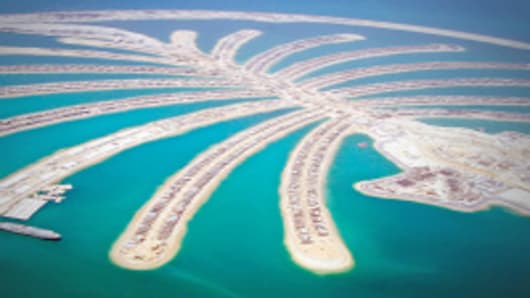Amid the flurry of PMI data throughout the past week, the United Arab Emirates came through with a figure that was “solid by global standards,” HSBC said in a note on Thursday. China and the euro zone both reported negative PMI levels.
In April, the HSBC UAE Purchasing Managers' Index rose to 53.5, the highest level since June 2011. The number, which gauges the performance of manufacturing and services sectors, signals an expansion when at 50 or above.
The one-point increase is also the strongest monthly gain since October of last year. Both new orders and new export orders advanced, but “more noticeable” were backlogs of work (51.6), and employment picking up to reach a 10-month high.
However, the bank remained cautious about whether the momentum would be sustained.
“For one thing, we are about to enter the quieter summer season which, even with seasonal adjustment, may show through in slower growth readings over the coming months,” HSBC said.
Summers in the Gulf tend to show less activity as many locals and expatriates go on annual leave to escape the intense heat. HSBC also added that despite improving economic conditions, pressures on company margins remained, with input prices outgrowing output prices.
The UAE is the OPEC’s third-largest exporter of crude oil, with total production amounting to 2.65 million barrels per day in March according to the International Energy Agency (IEA). The IMF sees growth reaching 2.3 percent this year, bolstered by high oil prices. Officials have been more optimistic, expecting around four percent.
Capital flows data since the beginning of the Arab Spring have also repeatedly shown that destinations such as the UAE and Qatar serve as regional safe-havens. Meanwhile, sanctions are tightening on Iran, historically an important trade partner, while supply outages in global oil markets are leading to higher oil prices.
“The only way to overcome the summer lull will be for summer (and Ramadan) to end — it’s just a fact of life here in the Gulf, activity just drops right off,” Liz Martins, senior economist at HSBC Bank Middle East, told CNBC.
Saudi Arabia, which last year revealed a massive social spending package, currently leads the region in terms of PMI growth. But it’s not driven merely by more expansionary fiscal policy.
“You have the fact that the banking sector is seeing substantial loan growth, which the UAE’s is not, and the fact that the UAE is exposed to global trade,” Martins added.
The Dubai Financial Market (DFM) is among the region’s top performers, second only to Egypt, having gained 18 percent so far this year.
--------------------------
Yousef Gamal El-Din is CNBC's Middle East Correspondent and contributes to the channel’s flagship shows, as well as analysis for CNBC.com.
Stay in touch with him on Twitter at http://www.twitter.com/youseftv @youseftv


